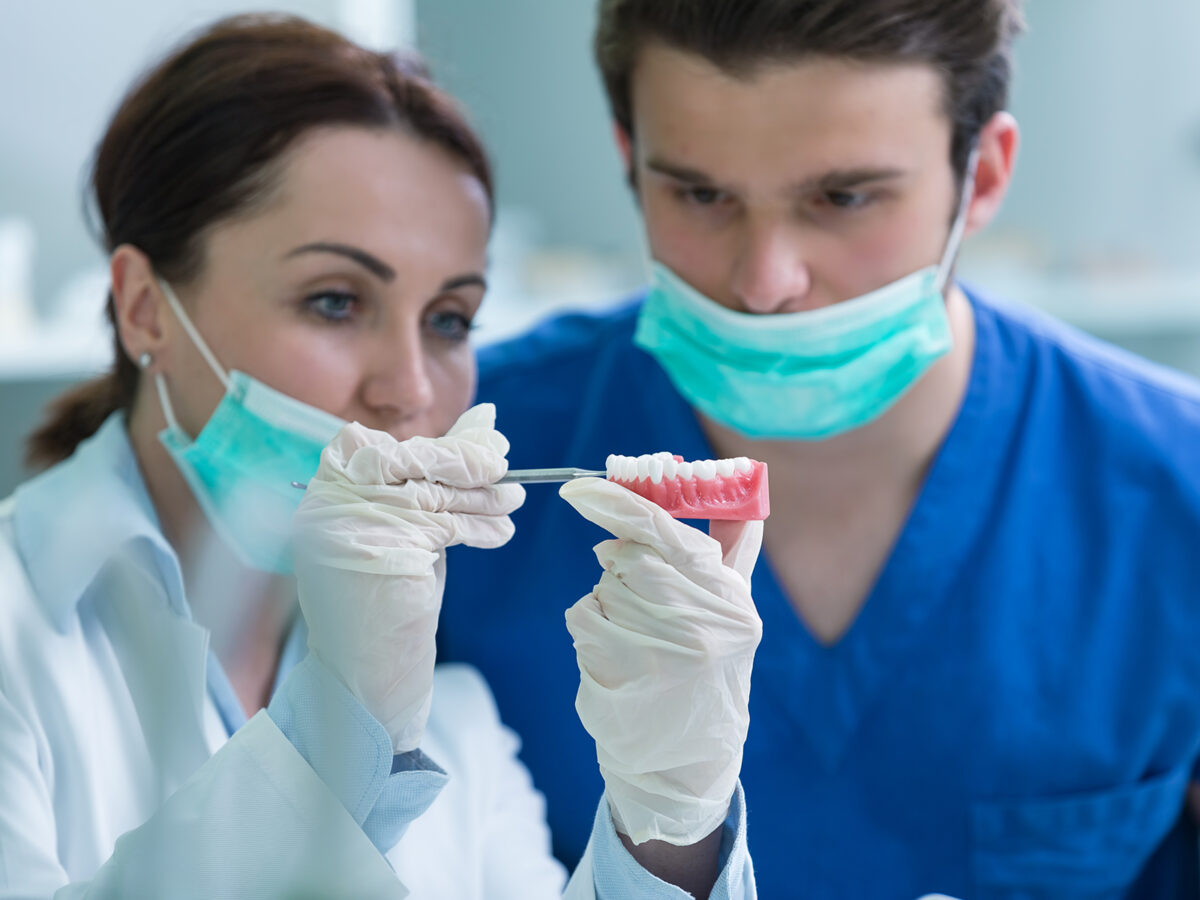Blog
Dental hygiene tips for healthy teeth & gums

Common mistakes that can damage your dentures
Natural aging, injury, or accidents can cause us to lose our natural teeth. This is when dentures come to our rescue to restore the functioning of our mouths, give us back our smiles, and enhance our appearance. They could be an investment for some of us; hence maintaining it could be crucial for many denture users.
But there are many mistakes that you might unknowingly commit while handling your dentures and affect their longevity. Things like using abrasive cleaning materials, whitening toothpaste, hot water, etc., can hamper its condition.
If you want to know detailed information on some of the common mistakes that denture owners might make (so that you can avoid them), read on, as this article will fill you with all the required information.
Things to Keep in Mind Regarding Dentures
Technology has improved over the years in leaps and bounds, yet we must not forget that our dentures need protection. Even if they are far more durable these days, you can still do many things which can damage or ruin your denture.
Here are a few common mistakes one can make with regard to their dentures:
- Using abrasive cleaning material – Dentures are constructed from manmade materials; hence you can not treat them the way you treat your natural teeth. That is why using whitening toothpaste, stiff-bristled brushes, hot water, products that have bleach in them, etc., can damage them irrevocably.
- Whitening toothpaste has peroxide in them which can weaken them.
- If you soak them in chlorine solutions, it will corrode and tarnish them. You must always use solutions made specifically for dentures.
- Extremely hot or boiling water can change the shape of your denture.
- Not wearing dentures regularly – This might surprise you, but not wearing them can also damage them. They are meant to be worn regularly, and if you do not wear them, they could dry out and eventually deform. A word of caution here; wear them all the time but do not wear them 24X7 (take them off while going to bed.)
- Not taking off dentures at bedtime – Your gum and mouth need a break from them daily. It is best to take them off when you sleep because you do not need to meet and interact with people at night. They also need to be cleaned daily; taking them out to clean and soak in solution is a necessary step in maintaining the denture.
- Not brushing often – When it comes to brushing, you should treat your dentures like your natural teeth. Having partial or full dentures does not mean you do not need to take care of your natural teeth, cheeks, tongue, and gums. Just like brushing your natural teeth twice a day, do the same with them using a soft-bristled toothbrush. For your natural teeth, you can use toothpaste with fluoride in it. They would harbor germs and deteriorate quickly if not brushed regularly.
- Brushing harshly – You would need to modify your brushing style for them as they need to be brushed differently from your natural teeth. Before brushing them, you should rinse them thoroughly with water and use a soft-bristled toothbrush along with a non-abrasive cleaner. You would also need to remove dental adhesive (if you use them to connect your dentures to your mouth) so that it does not build up.
- Incorrect removal or insertion of dentures – You can break your dentures if you insert or take them out incorrectly. You must learn the proper method of inserting and removing them from your dentist to prolong its life.
- Drying out dentures – If you remove your dentures and leave them out without soaking them in proper dental solutions, your dentures will dry out. When they dry, they can easily get damaged due to warping and result in ill-fitting dentures. Your dentist is the best person to ask what kind of solution you should keep them in after removing them.
You have just seen some of the most common mistakes that can damage your dentures, but the biggest mistake would be not visiting your dentist regularly. You must meet your dentist at least once in six months as your gums, and the rest of your mouth still need regular examination by the expert.


